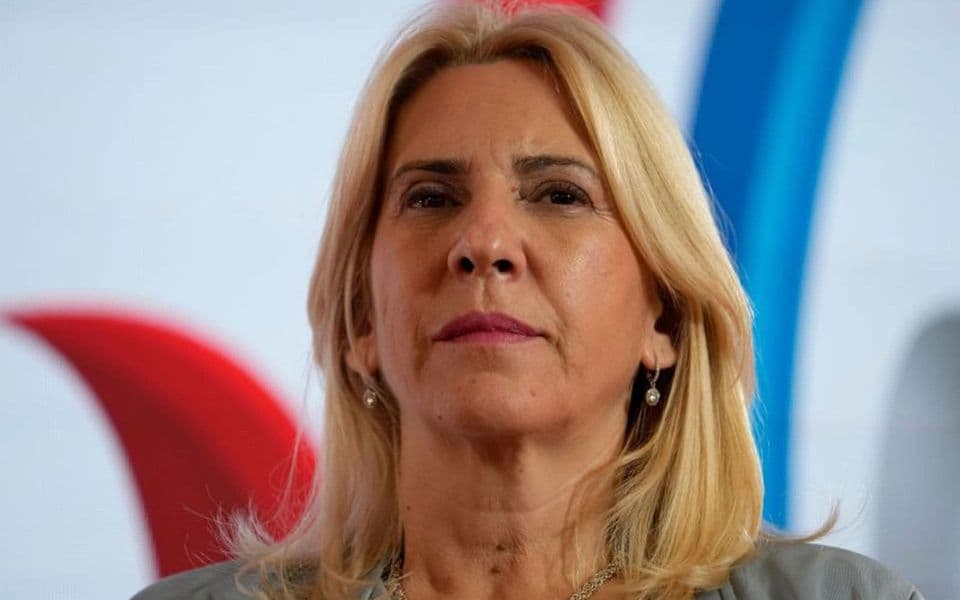Lifestyle
Komsic and Becirovic Reject Cvijanovic’s Nobel Proposal for Trump

In a significant political move, members of the Bosnian presidency, Zeljko Komsić and Sefik Becirović, have blocked a proposal put forward by Zeljka Cvijanović to nominate former U.S. President Donald Trump for the Nobel Peace Prize. The decision has sparked intense debate within Bosnia and Herzegovina, reflecting the ongoing complexities of its political landscape.
The proposal, which aimed to recognize Trump for his role in the 2020 peace agreement between Serbia and Kosovo, was met with immediate resistance. Komsić and Becirović, both representatives of the multi-ethnic presidency, cited concerns over Trump’s controversial political record and the implications of endorsing a figure who has been polarizing on the international stage.
Komsić emphasized the need for peace and stability in the region, stating, “Nominating someone with such a divisive history does not align with our commitment to fostering reconciliation.” This statement highlights the delicate balance that Bosnian leaders must maintain, navigating their country’s post-war identity while responding to international diplomacy.
Becirović echoed these sentiments, asserting that the nomination could undermine Bosnia and Herzegovina’s efforts to promote unity among its diverse ethnic groups. He remarked, “We must focus on leaders who embody the values of peace and cooperation, rather than those who have fueled division.”
The idea of nominating Trump for the Nobel Peace Prize has been met with skepticism outside Bosnia as well. Critics argue that his administration’s foreign policy often contradicted the ideals of diplomacy and collaboration. The decision by Komsić and Becirović is seen as a reaffirmation of Bosnia’s commitment to a multi-ethnic society that prioritizes inclusivity over division.
The discussion around this proposal highlights ongoing tensions within Bosnian politics. Since the 1995 Dayton Agreement, which ended the Bosnian War, leaders have grappled with the challenge of unifying a country composed of various ethnic groups, including Bosniaks, Croats, and Serbs.
As the debate continues, the implications of this decision may resonate beyond Bosnia, impacting perceptions of the country’s political stability and its international relationships. The rejection of the proposal serves as a reminder of Bosnia and Herzegovina’s ongoing journey toward reconciliation and the importance of leadership that reflects its diverse society.
In the coming weeks, it remains to be seen how this political stance will influence Komsić and Becirović’s credibility and standing both domestically and abroad.
-

 World2 months ago
World2 months agoCoronation Street’s Shocking Murder Twist Reveals Family Secrets
-

 Entertainment2 months ago
Entertainment2 months agoAndrew Pierce Confirms Departure from ITV’s Good Morning Britain
-

 Health5 months ago
Health5 months agoKatie Price Faces New Health Concerns After Cancer Symptoms Resurface
-

 Health2 weeks ago
Health2 weeks agoSue Radford Reveals Weight Loss Journey, Shedding 12–13 kg
-

 Entertainment6 months ago
Entertainment6 months agoKate Garraway Sells £2 Million Home Amid Financial Struggles
-

 Entertainment5 months ago
Entertainment5 months agoAnn Ming Reflects on ITV’s ‘I Fought the Law’ Drama
-

 World3 months ago
World3 months agoBailey Announces Heartbreaking Split from Rebecca After Reunion
-

 Entertainment2 months ago
Entertainment2 months agoDavid Jason and Nicholas Lyndhurst Eye Reunion for Only Fools Anniversary
-

 Entertainment3 months ago
Entertainment3 months agoCoronation Street Fans React as Todd Faces Heartbreaking Choice
-

 World3 months ago
World3 months agoEastEnders’ Nicola Mitchell Faces Unexpected Pregnancy Crisis
-

 Entertainment2 months ago
Entertainment2 months agoBradley Walsh Sparks Strictly Come Dancing Hosting Speculation
-

 Entertainment2 months ago
Entertainment2 months agoTwo Stars Evicted from I’m A Celebrity Just Days Before Finale





















